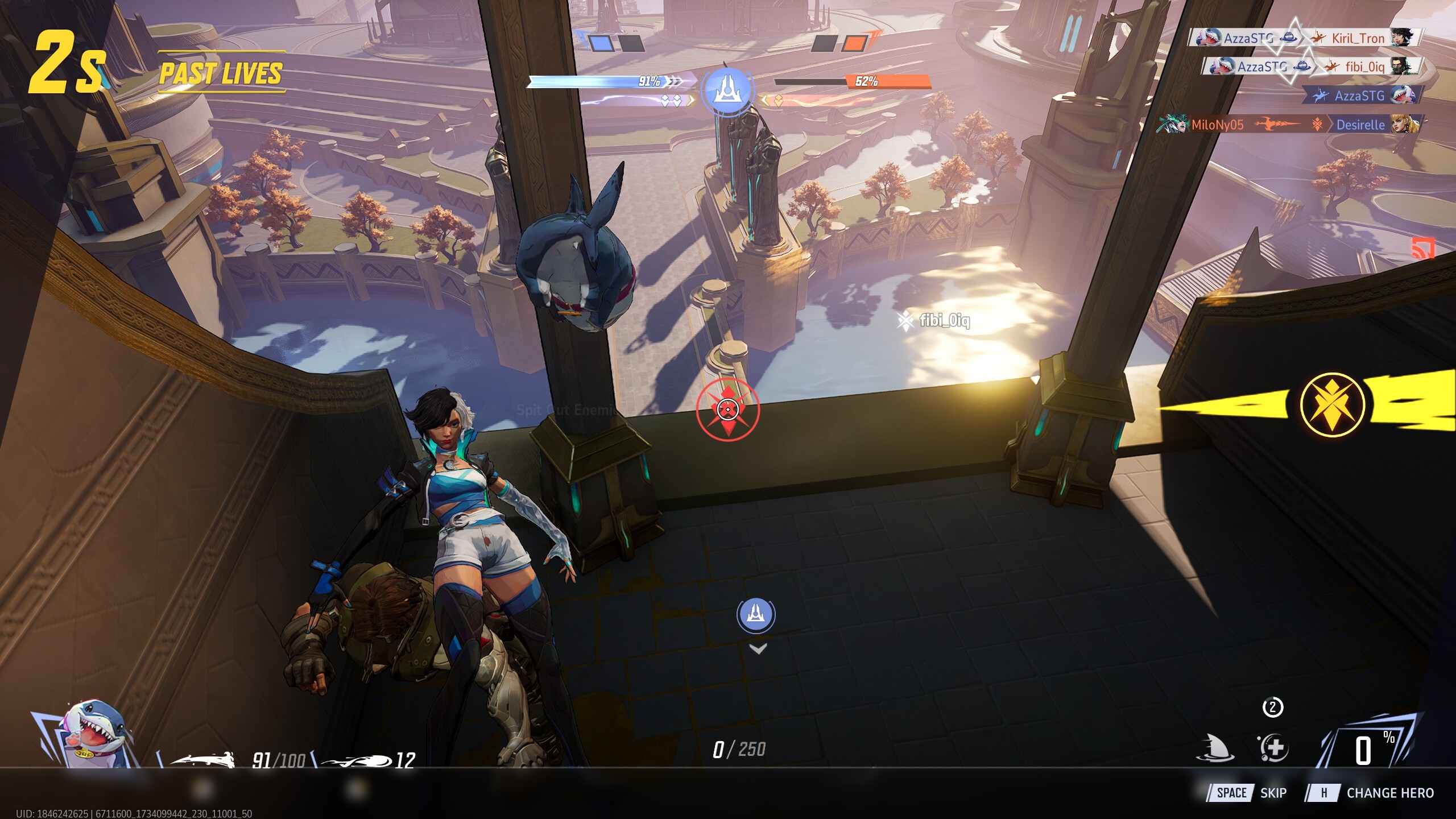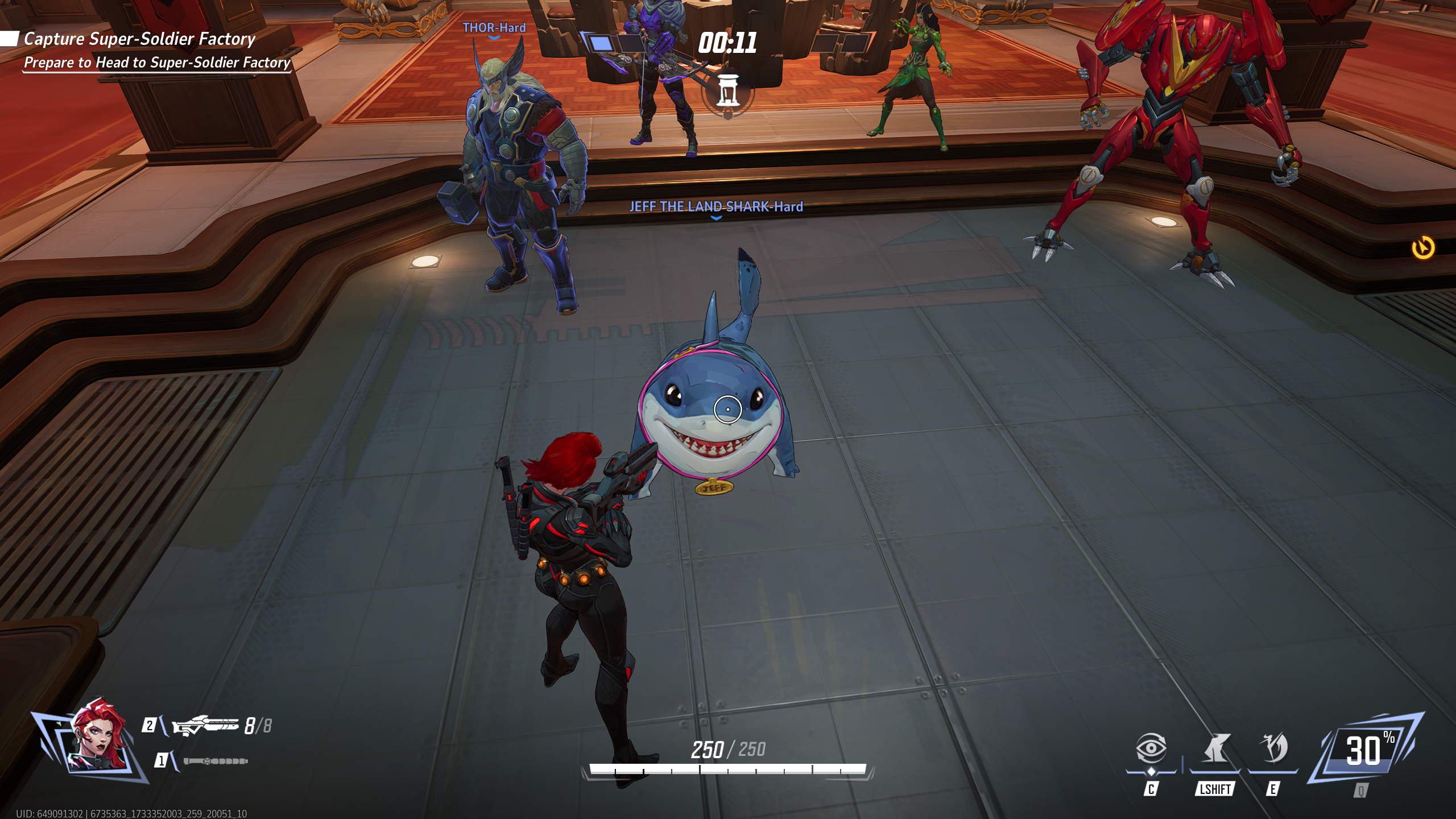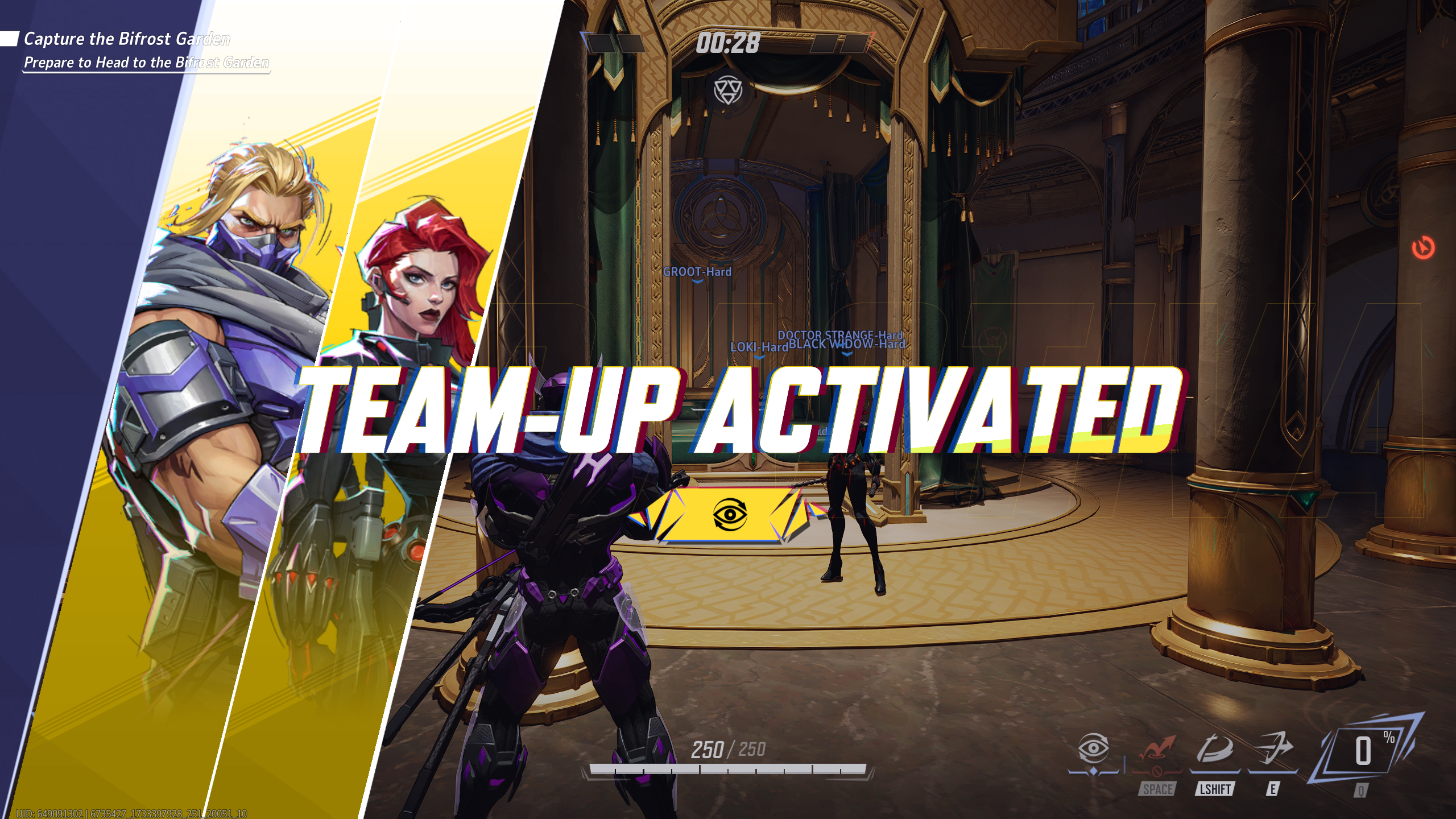It seems like every moment of my spare time nowadays is spent in a hero shooter. When I’m not fighting for my life in Valorant, I’m doing the same thing in Overwatch 2. So the last thing I need is a hero shooter I actually enjoy and will, therefore, carve more time out of my day playing it: enter Marvel Rivals.
Need to know
What is it? A third-person hero shooter in which you play as various Marvel heroes in teams of six.
Release date December 5, 2024
Expect to pay Nothing
Developer NetEase Games
Publisher NetEase Games
Reviewed on RTX 3070, Core AMD Ryzen 5 5600G, 16GB RAM
Multiplayer Yes
Steam Deck Verified
Link Steam
I didn’t expect Marvel Rivals to get its grips into me so quickly, but I’m having a good time feeling out the kits of its 33 launch heroes divided into three classes: vanguard, duelist, and strategist (tank, DPS, and Support), every one of which also includes unique ‘team-up’ abilities activated by building the right team composition. I’ve been maining Hawkeye, which I am ashamed to admit, considering how strong he is right now, and that’s not even considering Black Widow’s team-up ability, which gives him a 20% damage boost.
It’s always fun to go through the wringer with a new hero shooter, especially at the chaotic beginnings. At first, I found it hard to recognise who was hitting you and where. I spent a lot of my time getting shot in the back by Moon Knight’s Ankh, which he can set down and then reflect projectiles off. It doesn’t matter if you’re behind a wall or can’t even see Moonknight—he’ll find a way to get to you.

Eventually, I was able to pick up on the sound Moonknight’s Ankh made when it reflected darts, and it became second nature to destroy it before trying to run for cover. There are loads of these little learning curves to master, many of which will feel familiar for Overwatch vets.
There’s nothing quite like reflexively sleeping an enemy Scarlet Witch with Mantis before she ults or pushing away a diving Wolverine without a second thought before he can sink his claws into you. There are a lot of intuitive abilities and counters in Marvel Rivals—all you have to do is take the time and have the patience to learn them.
Rivals’ maps are one of its most distinctive features, as battlegrounds transform throughout a match.
Getting to know each of the eight launch maps is also a lot of fun. Rivals’ maps are one of its most distinctive features, as battlegrounds transform throughout a match either through a dynamic destruction or bespoke map events. It’s a good way to shake up a match and can also be used to turn the tide in your favour. If there’s a particular spot that a Black Widow player likes to perch on, for example, chances are you can blast it for a few seconds to destroy that vantage point. Unfortunately, the map will build itself back up every now and then, so it’s best to be on the lookout for that pesky Black Widow.
Although I thought I was losing it when walls kept appearing in front of me on Klyntar, it turns out that the map’s walls periodically shift around and literally change its blueprint, sorta like the Clockwork Mansion in Dishonored 2. This can be a blessing and a curse as it can sometimes cut off long lines of sight, which can protect attacking teams but also means you sometimes need to switch up your angles.
Too much of a good thing

Starting with 33 heroes is a bold move, considering most other hero shooters begin with a smaller roster that’s easier for new players to digest before growing over time. That character select screen is a bit daunting, but the expansive roster is also great because it means there’s something for everyone.
You have your straightforward heroes like Black Widow or Hawkeye, pure aimskill heroes who rely on players landing headshots, Punisher is your beginner-friendly Soldier 76 type with an assault rifle, and tanks like Groot and Magneto, who just place shields and gradually wear down the front line.
Then, on the slightly more complicated side, you have your rapid-dive heroes like Iron Fist, Psylocke, and Spider-Man. These heroes are a little trickier to get the hang of, but it’s high-risk, high reward because I don’t think there’s anything scarier than a genuinely skilled Spider-Man player.

Marvel Rivals manages to cater to most sections of the hero shooter playerbase with characters that have varying skill ceilings and purposes. You can hide in the back, sniping or healing, or be in the midst of battle, darting around or breaking down walls with brute strength. On the other hand, this massive roster of heroes is also Marvel Rivals’ undoing: There are loads of completely busted heroes right now. Hawkeye is a one-shot headshot for duelists and strategists, while Jeff the Shark is able to gobble up full teams of players and launch himself and all of them off the map in one go. Dominant heroes and instakill gimmicks are considered funny and meme-worthy right now in Marvel Rivals’ honeymoon stage, but soon graduate to annoyances—talking points from which mobs of players will sharpen their pitchforks. Dr. Strange’s teamkill teleport tactics are already beginning to wear thin—if I have to watch my team helplessly run off the map one more time, I’m going to seriously lose it.
Balancing a roster of heroes is arguably one of the hardest things a live service hero shooter has to do, and Marvel Rivals has made things unnecessarily difficult for itself by starting off with so many instead of drip-feeding players. But arguably, NetEase is more concerned with filling Marvel Rivals with loads of fun heroes rather than ones that are more balanced straight out of the gate. It’s an unorthodox approach, but one that may work out in the long run if NetEase pulls up its sleeves quickly enough.
Duelists everywhere

In a similar vein to unbalanced heroes, there is also an uneven number of heroes in each class. The trouble is in a game that requires an even number of roles—usually two vanguards, two duelists, and two strategists, or something similar to this—if you have twice as many duelists than strategists and vanguards combined, chances are most teams will just be made up of duelists.
The balancing issues and iffy team composition will hopefully not weigh Marvel Rivals down.
The worst matches I’ve experienced in Marvel Rivals have been when no one else is willing to switch off duelist, so we just get completely rolled by the opposing team, which has a balanced composition of vanguard, duelist, and strategist. I can play the strategist Rocket Racoon all I like, but if I’m stuck with a team full of duelists, we’re not going to get very far.
This is something that Overwatch has struggled with ever since it merged the roles of offensive and defensive DPS. Since then, tank and support have been an afterthought for many years until a recent push to try and even out the classes. So I thought that this headache was something Marvel Rivals would want to avoid from the start by creating classes with a similar amount of heroes, but it seems that I was wrong. So, unbalanced team composition will probably stick around as a common issue until something like a role queue is added to the game, or the weak give in and assign themselves to vanguard or strategist.
The balancing issues and iffy team composition will hopefully not weigh Marvel Rivals down—my pessimistic outlook could just be a weary symptom of years playing Overwatch 2. I really hope the developers manage to even out the playing field a bit more so Marvel Rivals can carry on seeing the same kind of success that it has had in its launch week. But for now, at least, I’m going to enjoy the chaos of an unbalanced game while it’s still fun and reap the benefits of running around as Hawkeye and getting more picks than anyone else, with the prize being my MVP award at the end of the match.
Source link